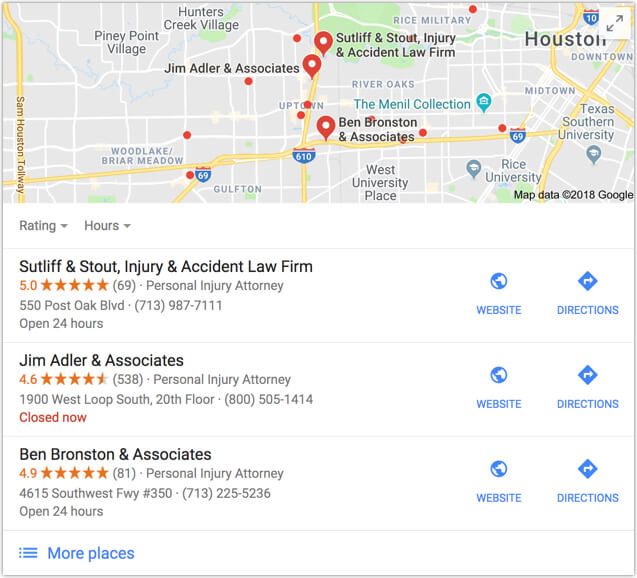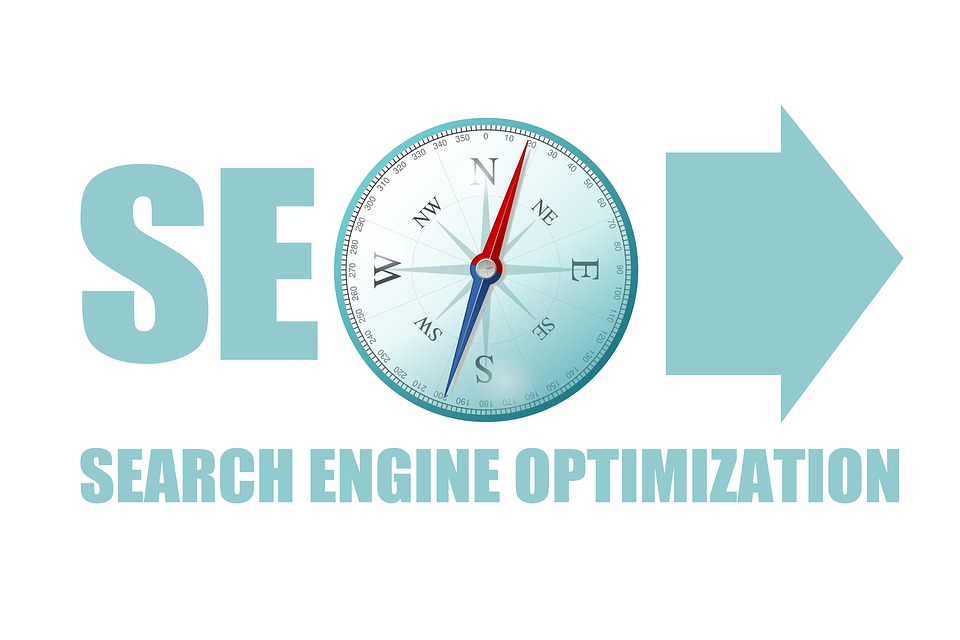Local SEO
You wouldn’t know it by simply looking but, it may seem like only larger businesses can benefit from SEO. Well, this couldn’t be further from the truth.
In today’s mobile-first world, brick and mortar stores need to keep their digital presence up to date as well. But how does one go about doing that? Assuming they already have a website, the next step is to optimize for local search.
While traditional marketing tactics may still be the most effective channel for acquiring new customers, almost every niche has something to gain from local SEO marketing these days.
As searching the internet has become routine, people of all ages have become increasingly acclimated to searching for information online. So it’s safe to say, that pretty much every business will benefit from having some form of an online presence.
Local SEO is hardly a new. You may have already read some articles or done a little bit of it when you built your website.
Believe me when I tell you it’s worth revisiting. The landscape is always changing, and so are the rules. So today we’re going to cover 6 things you can do to improve your local SEO.
Before we get started, let’s take a look at how local search actually works.
How Does Local Search Work?
When someone goes onto Google and searches for a business in a particular town, city or region, they’re going to get local results. No surprise there, right?
These local results typically appear on the right side of the SERP and are referred to as the “local pack.”

Cruz Online Marketing
So for you, as a local business owner, it should be clear where you want your business to show up. Right on top of that local pack or in the top 3 organic results themselves.
As you can probably guess, the amount of traffic for any position in the SERP, including the local pack, can vary quite a bit. Unfortunately, the value of the top local pack slot took a noticeable hit when Google introduced ads to the local pack.
These ads appear above the true local listings, and they can really cut into organic CTR.
There’s also the issue of having the initial local pack results drop from seven to three. Users can still view all seven of the results, but they’ll need to click a button to display the full list.
Due to these changes, local SEO is only becoming tougher and more competitive. It goes without saying that there will always be changes on the horizon. The pace of change is still lightning quick when it comes to the internet and search technology.
Depending on the way these platforms evolve, local SEO could easily become even more difficult than it already is.
This is the real reason you want to get your local SEO in order. No one wants to be playing catch up for years and years.
So, now that we’ve got a firm understanding of what local SEO is, let’s cover the 6 things to know to improve your local marketing strategy.
1. Optimize For On-Page SEO
If you’re not familiar with on-page SEO, click that link and go read up! It is critical to the success of any search optimization campaign.
The best practices differ a bit as they pertain to local search marketing. For starters, you’ll need to take into consideration the type of business you’re running.
Is your businesses a restaurant or shop that people will physically come visit?
Or are you the type of business that goes to where your clients are?
Examples of the latter are repairmen, plumbers and the like.
Regarding the former, it would be much easier for you to optimize your website by targeting the location where your shop is physically located. By simply adding your store’s location (city, state and zipcode), you can greatly increase your chances of being featured in the local pack.
Be consistent, this is key. Make sure that everywhere on your site (and in all of your directory listings) that your name, address and phone number are the same.
Local businesses that offer their services in different locations have a somewhat more difficult task at hand. To be specific, these businesses will often want to create pages on their site that are optimized for each local area in which they provide service.
Whether it’s multiple cities, states, or neighborhoods that you serve, having individually optimized pages for each can make a big difference in your SEO results.
2. Acquiring Quality Links
Many local businesses don’t put enough stock into building links to their website.
This is a huge mistake! In recent years, link-building has earned a bit of a bad reputation. But that’s because many SEO companies and practitioners abuse it.
In reality, links are still the single most important off-page ranking factor. The key is to do it responsibly, and to focus on earning relevant and high-quality links. We’re not talking about buying links off Fiverr people. Avoid doing that.
Launching an effective and sustainable link building campaign is never simple. While there are countless of tactics that you can implement, it ultimately depends on the niche of your business. Therefore, not all techniques will work in different industries.
One of the most important things you can do is to create high-quality content. You can proactively reach out to content creators to get your own content linked to or mentioned. You can also leverage PR opportunities and social channels to increase your inbound link count.
To learn more about how to safely build links for your local business, read this post at Moz. It’s full of great ideas that any local business owner can implement with no SEO experience.
3. Create A Google My Business Account
If you want to improve your placement in the search rankings, be sure to sign up for a free account at Google My Business. This will secure your local business listing on Google, and even creates a short and sweet business page.
So what does this accomplish? For starters, it is your path to claim your business online and confirm that you are indeed the owner.
Afterwards, you’ll be able to upload images that best reflect your business and branding. But that’s just the tip of the iceberg.
You can also create a compelling description, confirm that your business name, address and phone number (NAP) are all correct, and more.
Another benefit that Google My Business brings to the table is its ability to curate all of the online reviews of your business. Social proof, which we’ll cover in greater detail later, is a huge factor when it comes to converting potential customers. It’s tangible evidence that shows how hard your business works to please customers. Don’t overlook this benefit, it can easily make or break a sale.
For a more detailed explanation on how to activate your Google My Business page, check out this additional reading at Search Engine Watch.
4. Update All Citations and Listings
As you begin to build your online presence, you will probably find yourself creating social media accounts. You’ll also see lots of advice to create local listings in order to help establish your online footprint.
In short, this is wise advice. Search engines definitely consider the number and quality of your citations and listings. Further, the accuracy of the information listed in those citations is crucial.
The key to citation building (and maintenance) is consistency. As you might imagine, if your details are inconsistent across your business listings, Google won’t be sure which information is correct. Everything must be identical.
This can lead to unfortunate circumstances where a searcher could get the wrong address for your business, go to a 404’d web page, etc. No surprise that this is certainly not good.
So be sure to keep your listings up to date. If your business moves to a new address or you change phone numbers, update your listings and accounts accordingly. Having the correct NAP shown across the web will help ensure potential customers can find your business without issue.
5. Create Social Proof
Peer recommendations are arguably the most important factor when it comes to sales.
Instead of trusting a brand to tell us that their services are great, we like to hear it from the customers themselves. Unbiased and objective reviews are always going to be more convincing then sales copy.
It should come as no surprise then, that public review sites like Yelp can make a big difference for many small businesses.
But before you can start enjoying the benefits, you’ll need to find customers that are willing to write reviews for you.
There’s no harm in asking them directly for reviews, but you’ll find that the majority often don’t have the time, patience, or motivation to follow through.
One alternative is to use a service like Yotpo, which can help you more effectively solicit reviews from your customers. They also have some additional tried and true methods of review generation that might be worth considering.
After you’ve collected some reviews, be sure to take a look at how customers are rating your product or service. If the reviews aren’t so great, it’s important that you deal with them in a timely and professional manner. Public and humble responses from business owners can often save that business from a bunch of bad publicity.
6. Develop Social Signals
The debate in the SEO world about how much of an impact (if any) social media can have on organic rankings. But let’s put that aside for today’s discussion.
Regardless of the impact on actual rankings, social signals are unequivocally important for local business owners and their online presence.
For starters, many searchers will check to see if a company has an active Facebook or Twitter profile as a pre-qualifying step before considering a visit or purchase. What’s more, providing valuable content across social networks can grow your exposure, earn new fans, and build loyalty.
This all creates a ripple effect of co-citations and brand mentions that you might not have been able to produce otherwise.
At a bare minimum, be sure to create social accounts on the platforms where you’re most likely to find your customers. Same as with the local citation building, ensure that your information is consistent and include recognizable brand imagery.
Final Thought
As you’ve probably gathered, Local SEO marketing is anything but easy.
There are a whole slew of best practices to learn and employ, but we strongly recommend you do just that. Taking this holistic approach can help put your business more reliably in front of your target audience.
Remember, the best practices here are not just limited to building links like you would for an ecommerce store. Instead, you want to tap into some additional channels that include social media and more traditional marketing methods.
Such is the nature of local SEO. Yes it’s complicated and the landscape is continually changing. But it’s worth the time and effort.
Follow the 6 tips above and hopefully we’ll see your business in the local pack soon.
More Informative Articles:
-7 Things You Have To Know About Local SEO!-
-Will Local Seo Work For My Business?-
“Contact Us Today To Start Your Local SEO Marketing”
(713) 538-3239


